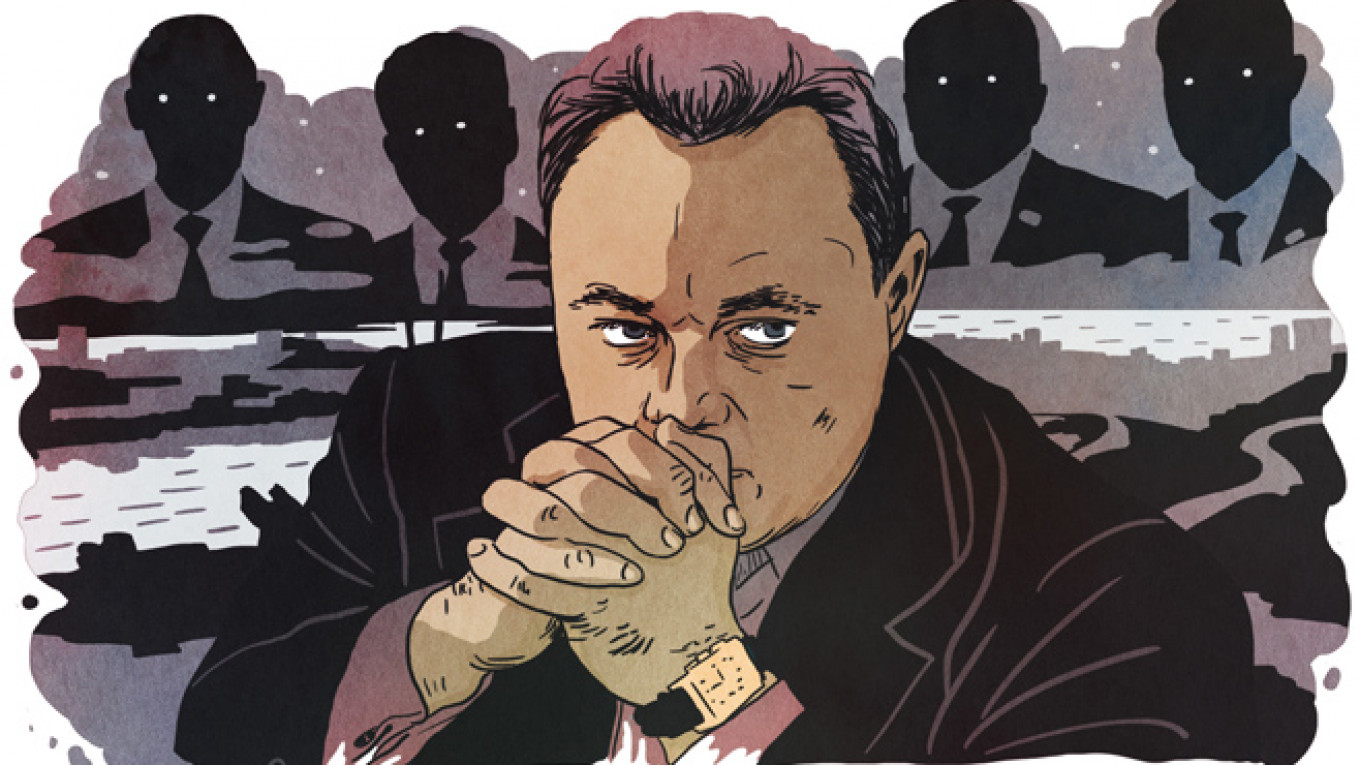Igor Pushkaryov had just under nine hours to contemplate his sudden change in fortune — the time it takes to fly to Moscow from Russia's Pacific port city of Vladivostok.
The 41-year-old businessman-cum-mayor of Vladivostok and United Russia loyalist once ran his electoral campaign under the slogan: "Who's the Kremlin's man?" But upon landing at Moscow's Sheremetyevo Airport on June 2, he wasn't so much a Kremlin man as a wanted man. Law enforcement took him straight from the airport to the infamous Lefortovo detention center.
Pushkaryov is accused of handing out bribes and rigging government tenders to hand building contracts to cement companies controlled by his two brothers. The scheme made him personally at least 45 million rubles ($700,000), according to the Investigative Committee. Leaked photos of his luxurious home — complete with jacuzzi and helipad — have circulated widely in the media.
His arrest is part of a pattern: For more than two decades, not a single Vladivostok mayor has avoided a run-in with the law for misusing their position.
The trend began in 1994, when the city's first post-Soviet mayor Viktor Cherepkov was ousted by Boris Yeltsin following corruption allegations amid a protracted turf war with the region's governor. Cherepkov has always denied the allegations against him, and was cleared by the court at the time. His successor Yury Kopylov fared little better and was charged with abuse of office.
The next mayor was Vladimir Nikolayev, aka "Winnie the Pooh." Even before assuming office, he had a criminal conviction for threatening to murder a political rival. He, too, was later charged with abuse of office and reportedly fled the country.
Vladivostok offers ample opportunities for quick money. It has a thriving fishing industry and is rich in natural resources. On the frontier with Asia, it is also a promising transit port. Thousands of kilometers away from Moscow, the city has often seemed to lead a life of its own, with local business and political interests closely entwined.
"For 20 years, the Primorye region — including its politicians and law enforcement — has been in the hands of gangsters and criminals," Cherepkov, the former mayor, told The Moscow Times.
In 2012, Vladivostok hit the jackpot when it was chosen to host the Asia-Pacific Economic Cooperation (APEC) summit. Six hundred billion rubles in federal funds were poured into the city to upgrade its infrastructure. Some investments raised eyebrows. Critics famously questioned the necessity of the Russky cable-span bridge, at that time the longest in the world, to an island of about 5,000 inhabitants.
The allegations surrounding Pushkaryov's arrest provide a logical explanation: Any construction project involving concrete seemingly turned to gold in his pockets.
Economist and regional expert Natalya Zubarevich refutes such easy conclusions. She notes that most of the Kremlin's cash injection stayed in the control of federal agencies, like the Economic Development Ministry. The region itself controlled "an insignificant amount" — about 10 percent of the total sum, she says. Corruption was "everywhere," she says, but much took place at the federal level.
Zubarevich supports a widely held view that Pushkaryov's removal is the result of a turf war with Primorye region governor Vladimir Miklushevsky, who met with Putin in Moscow a few days prior to the arrest. "It's an internal political struggle that, in classic Russian tradition, is being resolved by the siloviki," she says, referring to strongmen with ties to the military and security agencies.
Another theory is that Pushkaryov's detention, and likely incarceration, is part of a nationwide purge of middle-level corrupt politicians ahead of parliamentary elections in the fall. In accordance with a new law, Vladivostok's next mayor will not be elected, but appointed by the local parliament.
According to local journalist Vasily Avchenko, this is unlikely to lift the mayoral curse. The real problem isn't with Vladivostok, but with Moscow, he says. Vladivostok's elected mayors have always needed Moscow's backing to succeed," he says.
"Vladivostok's next mayor will be neither better nor worse," he says. "Because the political system in the country remains the same."
Contact the author at [email protected]. Follow the author on Twitter at @EvaHartog
A Message from The Moscow Times:
Dear readers,
We are facing unprecedented challenges. Russia's Prosecutor General's Office has designated The Moscow Times as an "undesirable" organization, criminalizing our work and putting our staff at risk of prosecution. This follows our earlier unjust labeling as a "foreign agent."
These actions are direct attempts to silence independent journalism in Russia. The authorities claim our work "discredits the decisions of the Russian leadership." We see things differently: we strive to provide accurate, unbiased reporting on Russia.
We, the journalists of The Moscow Times, refuse to be silenced. But to continue our work, we need your help.
Your support, no matter how small, makes a world of difference. If you can, please support us monthly starting from just $2. It's quick to set up, and every contribution makes a significant impact.
By supporting The Moscow Times, you're defending open, independent journalism in the face of repression. Thank you for standing with us.
Remind me later.






